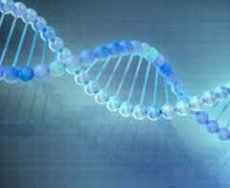New publications
Women live longer than men because of mutations in DNA
Last reviewed: 01.07.2025

All iLive content is medically reviewed or fact checked to ensure as much factual accuracy as possible.
We have strict sourcing guidelines and only link to reputable media sites, academic research institutions and, whenever possible, medically peer reviewed studies. Note that the numbers in parentheses ([1], [2], etc.) are clickable links to these studies.
If you feel that any of our content is inaccurate, out-of-date, or otherwise questionable, please select it and press Ctrl + Enter.

Changes in mitochondrial DNA may lead to differences in life expectancy between women and men, scientists from Australia have found, writes the journal Current Biology.
Mitochondria, present in almost all cells of living organisms, are vital because they convert food into energy that powers the body.
The study was led by Dr Damian Dowling and PhD student Florence Camus from the School of Biological Sciences at Monash University in Melbourne, Australia, in collaboration with Dr David Clancy from Lancaster University. The researchers looked at how lifespan and ageing processes differ between men and women using the fruit fly model, which has mitochondria in different structures.
"Surprisingly, the same mutations that affect lifespan and ageing in males do not have the same effect in females. They only affect males," Dr Dowling is quoted as saying in a Monash University press release.

He points out that the trend toward longer lifespans among females is common across species. "Our results suggest that the mitochondrial mutations we discovered are primarily responsible for the faster aging of males," Dowling says.
According to scientists, these DNA changes are a kind of whim of nature when genes are passed on from parents to offspring.
"While children receive copies of most of their genes from both parents, they inherit mitochondrial DNA only from their mothers. This means that the evolutionary quality control called natural selection fixes only the quality of mitochondrial genes in mothers," the scientist says.
"But if a mitochondrial mutation harms fathers but has no effect on mothers, this gene change 'slips' unnoticed through the 'eye' of natural selection. Thousands of generations of people accumulate these mutations, which affect only men but leave women unharmed," says the doctor.
His findings also build on earlier work on the role of maternal transmission of mitochondrial DNA in causing male infertility.
"Together, our studies show that the mitochondria is a 'hot spot' for mutations affecting the male population. It is now necessary to study the genetic mechanisms that could nullify the effect of these harmful mutations and preserve male health," the scientist concludes.
According to the Russian Ministry of Health, in 2011 life expectancy increased for the entire population of Russia by 3.7 years and amounted to 70.3 years. The average life expectancy for men reached 64.3 years, for women - 76.1 years. In 2006, it was 60.4 years for men, 73.2 years for women.
According to the UN, life expectancy worldwide is 67.2 years (65 for men and 69.5 for women).
